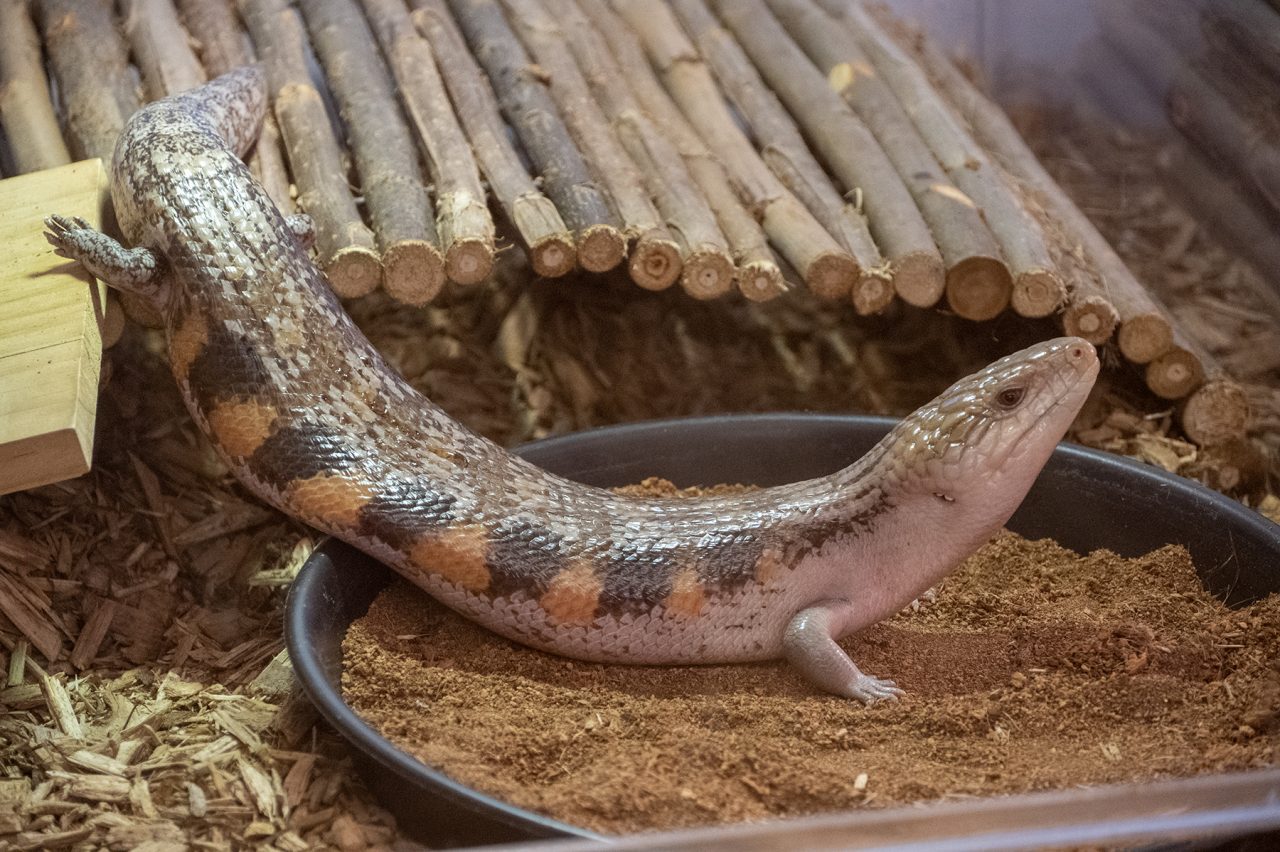
The North Carolina Aquarium at Pine Knoll Shores is asking the public to help choose names for the newest animal ambassadors, two female blue-tongue skinks.
Both of the blue-tongue skinks, an eastern blue-tongue and a northern blue-tongue, are native to Australia, and both species can live anywhere between 15 to 30 years.
Supporter Spotlight
They two arrived in May and went through a 45-day quarantine period, during which the veterinary team observed them to ensure they were healthy. Aquarium aquarist and skink caretaker Megan LeDoux said both skinks are doing well and have adjusted to their new habitats. LeDoux has gotten to know them over the past few months and said they are both wonderful eaters and tolerate baths. Their diets consist of various insects, fruits, veggies, and mice.
“We’re excited about our new animal ambassadors because they’re an amazing representation of lizards and can help our guests make connections to other reptiles like the three species of five-lined skinks in North Carolina. Seeing these large blue-togue skinks up close can help people want to learn more about North Carolina skinks and lizards,” Education Curator Emily Fessler said in a statement.
Volunteers and staff came up with a list of names based on the aquarium’s animal ambassador naming criteria. The names should highlight an important connection to the animal’s historical or cultural significance, natural history, scientific name, or an aspect of the animal’s adaptation or behavior. We’re asking guests and visitors to pick their top two favorite names from the list.
The name choices Include the following:
- Syd: short for Sydney, Australia. The capital city of New South Wales and the most populous city in Australia.
- Mel: Short for Melbourne, the capital of the Australian state of Victoria and the second-most populous city in Australia.
- Sunny: The name comes from the Sunshine Coast, the region in South East Queensland, Australia.
- Tili: Short for Tiliqua. Both skinks belong to the genus Tiliqua.
- Wiru: (pronounced wi-roo) Means “Beautiful” in the Western Desert Language. These dialects are the largest language group of Aboriginal Australians.
- Bluey: A nickname for blue-tongue skink and highlights one of their best-known features – their blue tongue.
Vote by Aug. 12 either online at www.ncaquariums.com/namethatskink, or at the information desk inside the aquarium. Reserve tickets and make membership reservations online at www.ncaquariums.com/tickets-pks.
Supporter Spotlight
Guests will be able to meet the skinks from 10 a.m. to 2 p.m. Aug. 17 during a public program when staff will reveal their new names.
“Our hope is that people will learn about the different adaptations that different lizards have based on their habitats. We also hope our guests will want to help conserve these amazing creatures, both ones at home and those around the world,” Fessler said.
The skinks can be seen during Creature Connections and Animal Encounters, two of the aquarium’s free daily programs, or will be in their habitats in the Discovery Classroom.
The schedule for daily programs is on the aquarium’s website.







